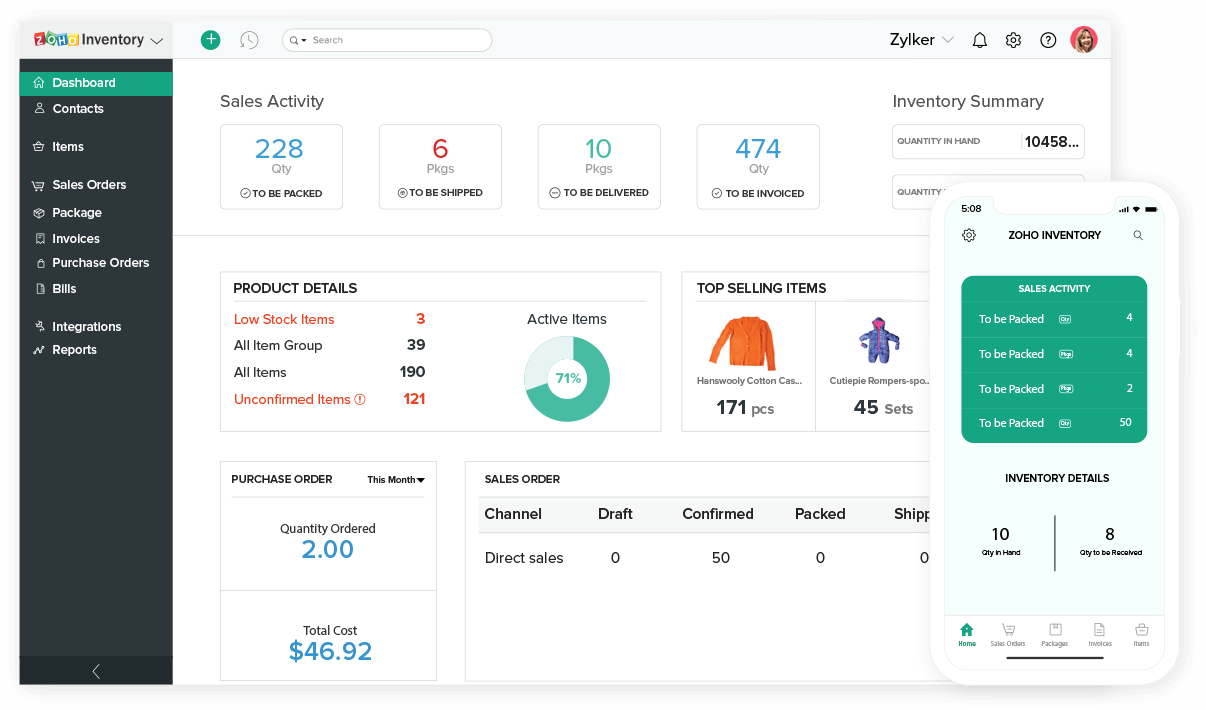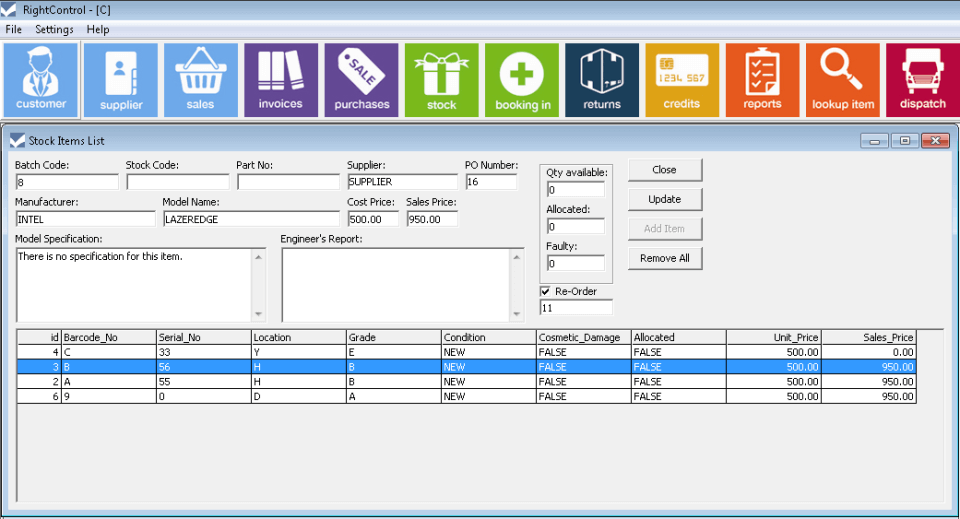Best inventory mangement software for book business – In the realm of bookselling, efficient inventory management is paramount. Introducing the best inventory management software for book businesses, meticulously designed to streamline operations and elevate your bookselling endeavors to new heights. With a plethora of features tailored specifically for the book industry, this software empowers you to navigate the complexities of inventory management with unparalleled ease and precision.
From ISBN tracking to genre categorization and author management, this software provides a comprehensive solution that caters to the unique needs of book businesses. Seamless integration with accounting software, e-commerce platforms, and shipping services ensures a cohesive workflow, eliminating bottlenecks and maximizing efficiency.
Essential Features of Inventory Management Software for Book Businesses
Efficient inventory management is crucial for book businesses to optimize stock levels, minimize losses, and enhance customer satisfaction. Specialized software offers a range of features tailored to the unique requirements of the book industry.
Key features include:
ISBN Tracking, Best inventory mangement software for book business
ISBN (International Standard Book Number) is a unique identifier assigned to each book. Software with ISBN tracking allows businesses to easily identify, locate, and manage specific books within their inventory.
Genre Categorization
Categorizing books by genre simplifies organization and enables targeted marketing campaigns. Software with genre categorization features helps businesses group books based on specific characteristics, such as fiction, non-fiction, or children’s literature.
Author Management
Managing author information is essential for tracking book sales and royalty payments. Software with author management features allows businesses to store author profiles, contact details, and sales history.
Integration and Compatibility Considerations
Seamless integration with other business systems is crucial for efficient inventory management in book businesses. Compatibility with accounting software, e-commerce platforms, and shipping services streamlines operations and enhances efficiency.
By integrating with accounting software, inventory managers can automatically update stock levels and track costs, reducing manual data entry and minimizing errors. Integration with e-commerce platforms enables real-time inventory updates, ensuring customers have access to accurate stock information. Compatibility with shipping services automates order fulfillment, saving time and reducing shipping delays.
Integration with Accounting Software
- Automates stock level updates and cost tracking.
- Reduces manual data entry and minimizes errors.
- Provides a comprehensive view of financial data related to inventory.
Compatibility with E-commerce Platforms
- Enables real-time inventory updates for customers.
- Improves customer satisfaction and reduces order cancellations.
- Facilitates online sales and order processing.
Integration with Shipping Services
- Automates order fulfillment and shipping label generation.
- Saves time and reduces shipping delays.
- Provides tracking information and updates customers on order status.
Scalability and Growth Potential: Best Inventory Mangement Software For Book Business

As your book business grows, it’s crucial to choose inventory management software that can scale alongside it. A scalable solution will allow you to manage a larger inventory, handle increased orders, and support multiple locations or channels without experiencing any bottlenecks or limitations.
Look for software that offers customizable solutions that can be tailored to your specific needs. It should also support integration with other business systems, such as your e-commerce platform or accounting software, to ensure seamless data flow and avoid manual errors.
Flexibility and Adaptability
The software should be flexible enough to accommodate changes in your business model or inventory management strategies. It should allow you to easily add or remove products, adjust stock levels, and track inventory across multiple locations or warehouses.
For example, if you decide to expand your business into new markets or launch an online store, your inventory management software should be able to support these changes without requiring major overhauls or costly upgrades.
Examples of Scalable Software
Some examples of inventory management software that offer scalability and growth potential include:
- NetSuite: A cloud-based ERP system that includes inventory management capabilities and can be customized to meet the needs of growing businesses.
- SAP Business One: Another cloud-based ERP system that provides comprehensive inventory management functionality, including multi-location support and real-time inventory tracking.
- Fishbowl Inventory: A standalone inventory management software designed specifically for small and medium-sized businesses. It offers flexible inventory management tools and integrates with QuickBooks and other accounting software.
Reporting and Analytics

Robust reporting and analytics capabilities are crucial for efficient inventory management in the book business. They provide valuable insights into inventory levels, sales trends, and customer preferences, enabling data-driven decision-making.Tracking inventory levels helps prevent overstocking and stockouts, optimizing inventory investment and ensuring availability of popular titles.
Sales trend analysis identifies fast-selling and slow-moving books, allowing adjustments in inventory levels and marketing strategies. Customer preference analysis reveals popular genres, authors, and formats, guiding future purchasing decisions and targeted promotions.
Customizable Reports and Insights
Effective inventory management software offers customizable reports and insights to meet specific business needs. These reports can be tailored to display key metrics such as inventory turnover, average days in stock, and sales by category. Advanced analytics tools provide deeper insights into customer behavior, such as purchase history, frequency of visits, and preferred payment methods.
This information empowers businesses to make informed decisions, optimize inventory levels, and enhance customer satisfaction.
Customer Support and Training

Reliable customer support and comprehensive training resources are crucial for successful inventory management in book businesses. They ensure that users can access the assistance they need to maximize the software’s functionality and resolve any issues promptly.
Knowledgeable support staff can provide personalized guidance, troubleshoot technical difficulties, and offer best practices for optimizing inventory management. Comprehensive documentation, including user manuals, tutorials, and online help, empowers users with the necessary knowledge to navigate the software and perform tasks independently.
Software Examples
- Bookmanager:Offers 24/7 support via phone, email, and live chat, along with extensive documentation and online training modules.
- Books & More:Provides dedicated support specialists, online forums, and a comprehensive knowledge base.
Epilogue

Choosing the right inventory management software is a strategic decision that can significantly impact your book business. By selecting software that aligns with your specific requirements, you empower your team with the tools they need to excel. Embrace the power of technology and watch your book business flourish like never before.
User Queries
What are the key features to look for in inventory management software for book businesses?
ISBN tracking, genre categorization, author management, integration with accounting software and e-commerce platforms, mobile accessibility, and robust reporting capabilities.
How does inventory management software help book businesses?
It streamlines operations, reduces errors, improves efficiency, provides real-time inventory visibility, and enhances customer satisfaction.
What are the benefits of using cloud-based inventory management software?
Accessibility from anywhere with an internet connection, automatic software updates, increased security, and scalability to accommodate business growth.
